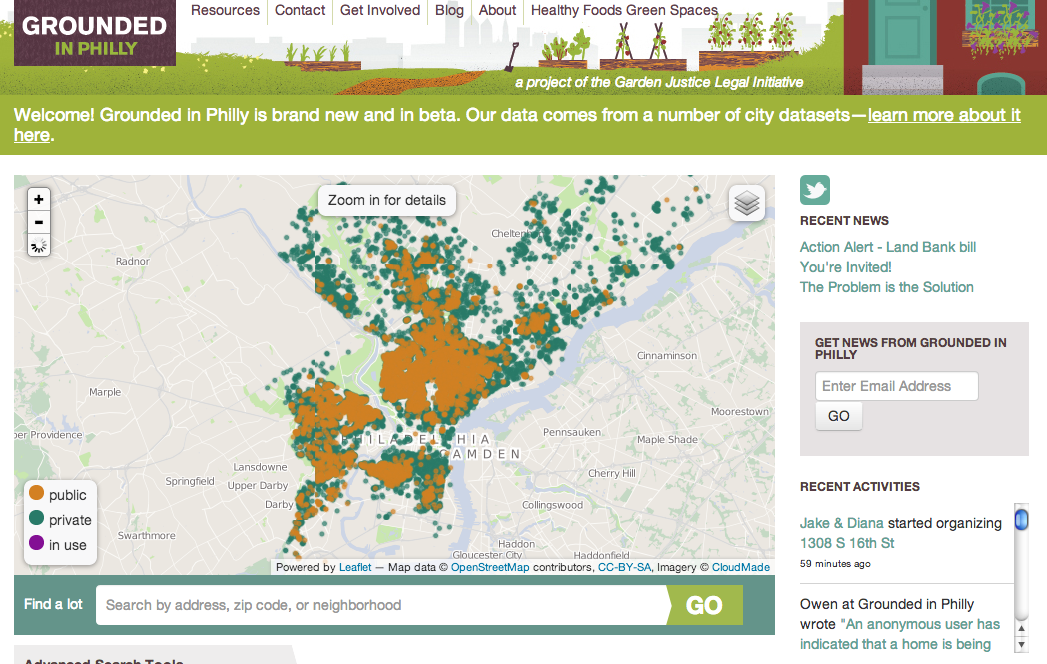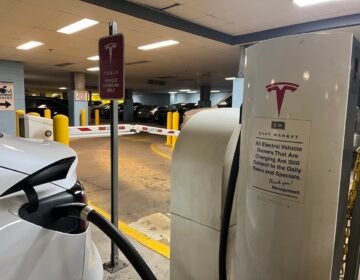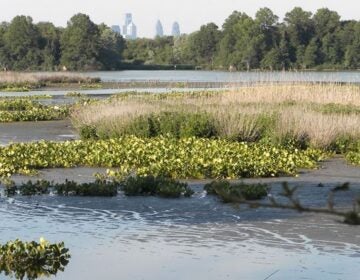New website helps gardeners secure vacant land

In the past year, the St. Bernard Community Garden fought to save its land from sheriff’s sale. The Sloan Street Community Garden lost a similar battle and was forced to relocate, and urban gardeners and advocates rallied against Councilman Brian O’Neill’s proposed zoning amendments, which would have created potentially prohibitive bureaucratic processes for urban gardeners.
Now, two developments are coming together that could prevent situations like these – which threaten the spread and survival of community gardens – and that could make it easier for community groups to navigate the often tricky territory of vacant land access.
One of those developments is Grounded in Philly, a new website that lists publicly and privately owned vacant lots in Philadelphia with the goal of helping gardeners secure ownership to those lots. The other development is Healthy Food Green Spaces, a coalition of individuals and organizations that support and advocate for community-managed green spaces and urban agriculture.
Grounded in Philly
Grounded in Philly grew out of work at the Public Interest Law Center’s Garden Justice Legal Initiative. The website, developed in partnership with Brooklyn-based 596 Acres, lists 32,760 of Philadelphia’s vacant lots. For each parcel, the site provides known information about the owner, lot size, why the lot is considered vacant, and the property’s City Council, planning and zoning districts.
Most important are two features. First, anyone who visits Grounded in Philly can add notes or photos to a given lot’s page and, ideally, connect with others interested in that lot. Second, for each lot there is information about how community gardeners can secure access to the land, i.e., through a sheriff’s sale, an agreement with a private owner or through adverse possession.
The goal is to help people and groups who wish to convert vacant lots into gardens, or who have already been gardening on abandoned land, gain ownership of the property.
“There are actually hundreds and hundreds of people who are gardening and growing food on parcels that have been abandoned, but traditionally those groups or individuals are not able to access even the information [necessary] to get permission to remain there long term,” said Amy Laura Cahn, Skadden Fellow at the Public Interest Law Center and director of the Garden Justice Legal Initiative.
For instance, when it comes to publicly owned vacant land, there are four different City agencies that own the lots, and each agency has its own, constantly changing systems, which are often hard to navigate.
“The goal is to democratize the information, to make the processes – what we’ve been calling the pathways to land tenure – transparent,” Cahn said.
Had the website and this information been available last year, at least two West Philadelphia community gardens might have found it easier to protect their gardens, both of which were threatened by development.
In December, West Philadelphia’s St. Bernard Community Garden started sending up flares. The gardeners had found out that one of two lots they had converted into a thriving neighborhood garden was up for sheriff’s sale. With the support of Councilwoman Jannie Blackwell, the gardeners were able to convince the City to bid-its-debt to essentially cancel out the back taxes and hand the land over to the gardeners.
“St. Bernard did a huge organizing campaign,” Cahn said. “They used the media really effectively, and they connected with neighbors. [Grounded in Philly], I would hope, would be a way of enhancing that.”
Gardeners at the Sloan Street Community Garden were not as lucky. There, gardeners found out the land had been sold at sheriff’s sale only after an eager developer cam “skipping over” to see the land he had just purchased, gardener Anne Zumbo told PlanPhilly in December.
“They found out after the train was already running,” Cahn said.
Had the Sloan Street group had information about how to purchase the land earlier, perhaps it would not have had to relocate when the developer decided to build a home where the garden stood.
“I want to figure out a way that we can alert people to what’s getting put up for sheriff’s sale in a more systemized way,” Cahn said. “Right now what we get from the city is Word document list… there’s no real efficient way of putting that data out into the world.”
If the Philadelphia Sheriff’s Office and the other groups that conduct the sales were to put the information in a spreadsheet format and map and share the data online, there would be an opportunity for Grounded in Philly to incorporate the data and alert gardeners working on the sites for sale in a timely manner.
Healthy Food Green Spaces
The second important development in Philadelphia’s urban agriculture community is the launch of the Healthy Food Green Spaces coalition.
When Councilman O’Neill proposed several zoning amendments last January, some of those included new regulations for community and market gardens in CMX-2 and CMX 2.5 districts. Urban gardeners and advocates came together to speak out against the amendments, which they felt would be detrimental to current gardens and prohibitive to future gardens. These changes were withdrawn from Councilman O’Neill’s amendment proposal.
Afterward, some of the groups that had come together to oppose the amendments decided to organize more formally. Together they formed the Healthy Food Green Spaces coalition with the goal of protecting existing gardens and farms and advocating on behalf of community gardens before City Council.
“They key is that this is a way for people’s voices to be heard,” said Phil Forsyth, director of the Philadelphia Orchard Project (POP). “I think in the past the city has regarded use of land for growing food as temporary use until land can be built on.”
Healthy Food Green Spaces is interested in promoting community gardens as permanent structures, Forsyth said.
One of the coalition’s first targeted campaigns will be supporting Councilwoman Maria Quinones-Sanchez’s bill to create a land bank for the city. The group hopes that a land bank will help put some of the vacant land in the hands of people who might then grow food on the land.
While there have been attempts by garden and urban agriculture advocates to organize in the past, Forsyth said this is the best organized effort so far.
“I think a lot of it is timing,” he said. “Certainly this is all one part of the local food movement that’s really taken off in recent years. There’s a lot more interest in the subject, and there’s been interesting legislation proposed and adopted that relates to it.”
He also credits the leadership of the Garden Justice Legal Initiative, which has provided a driving force for the coalition.
As Cahn explained it, “We were able to really demonstrate that folks doing community gardens, market farms and community led open space projects are a constituency beyond just the neighborhood level. Particularly with land policy changing [the coaliton provides] an opportunity to have a voice.”
Both Healthy Food Green Spaces and Grounded in Philly will be officially unveiled Wednesday night at an event hosted by the Federation of Neighborhood Centers’ Teens 4 Good Farm at 8th and Poplar streets from 4:30-7 p.m. After that, Grounded in Philly will provide a landing page for Healthy Food Green Spaces, a natural fit given the synergy between the two initiatives.
WHYY is your source for fact-based, in-depth journalism and information. As a nonprofit organization, we rely on financial support from readers like you. Please give today.







